Hey guys Cavalier here, co-host of Splintermind the Dark Eldar podcast and commission painter for Frontline Gaming. Sharing my thoughts on how to start campaign play with your group and why its so enjoyable.
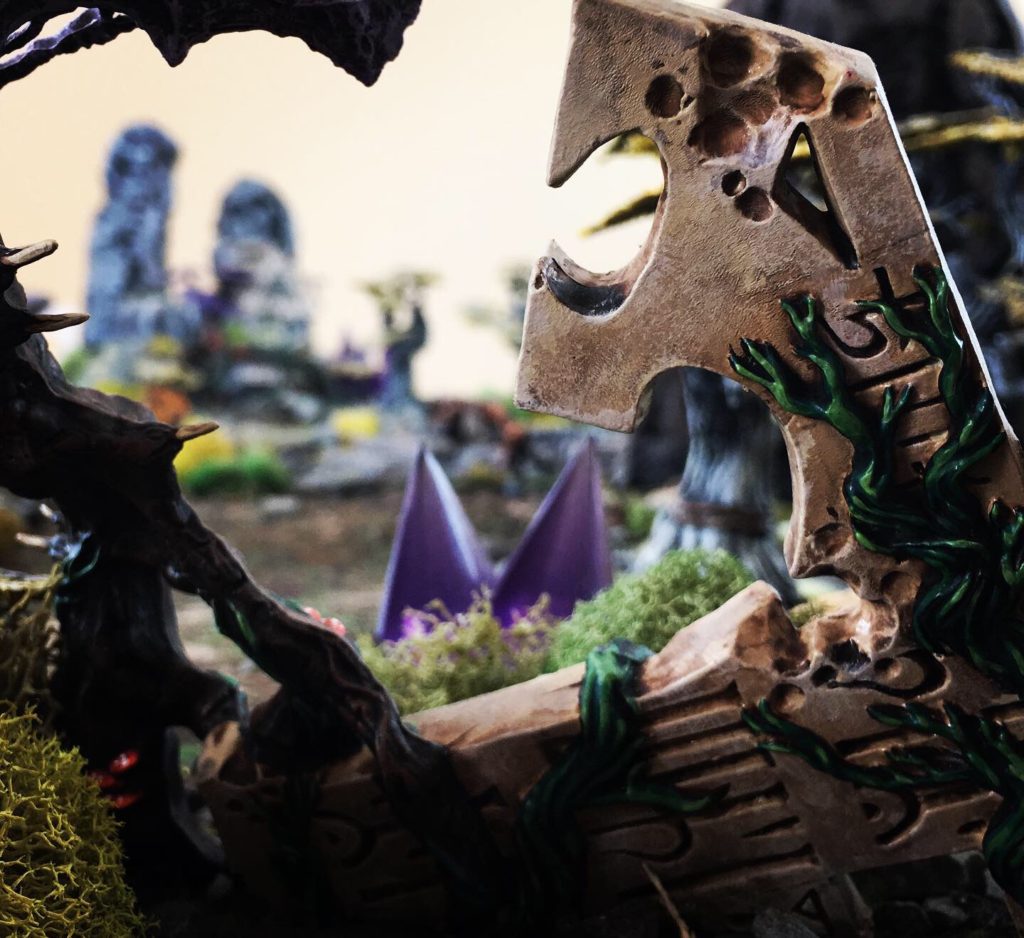
Where to Begin
Running a successful campaign is something that many players find elusive. The reason being is that players often go “Full RPG Mode” and create an overly elaborate means of progression through a very elaborate story.
I’ve had great success in running campaigns because I keep it very simple. With people who are new to trying out campaign play I usually run a 3 game series, typically between only a small handful of players.
Keeping the number of games required to complete the campaign at a low figure usually guarantees continued investment and with a clear goal in mind, keeps players fairly motivated to win the whole thing and getting those competitive juices flowing is usually a good thing. It helps the players feel like they aren’t taking a massive detour in their normal 40k routine.
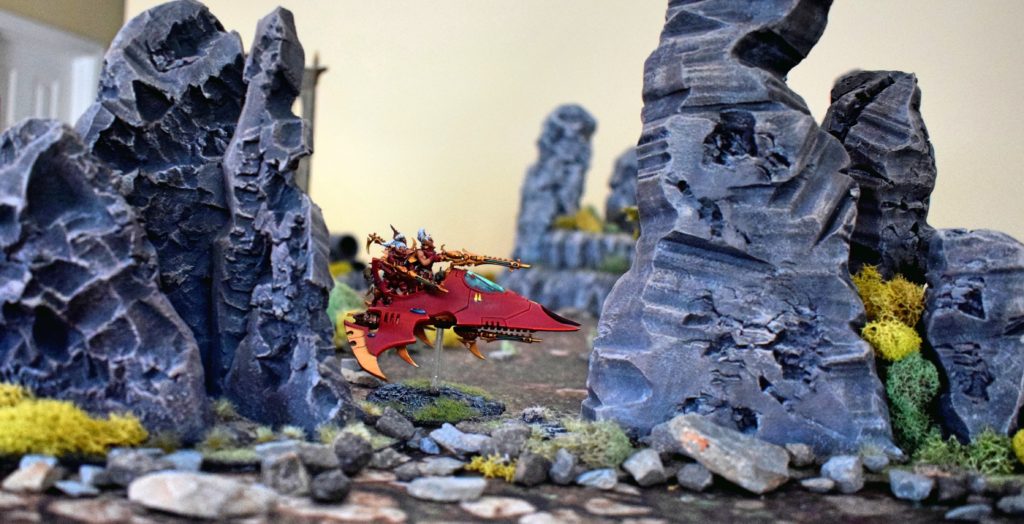
Narrow Your Scope
In all my experience, narrative play is better when its restrictive- but only in certain areas. The primary area of restrictivness is in the factions involved. In the campaign I just ran for patreons of my podcast, we kept it super simple: Chaos vs. Aeldari. The Warmaster wanted to prevent further Aeldari involvement in the 13th Black Crusade after their unexpectedly massive impact on the course of the war when they resurrected Guilliman and birthed a new Aeldari god threatening Slaanesh’s existence. To cripple their reach he sought to destroy or capture a major network in the Webway. Involving other factions in such a narrative only muddies the story and the motivation.
By limiting the factions involved, it also limits the amount of players involved which means its logistically less involved which helps guarantee completion of the over all story.
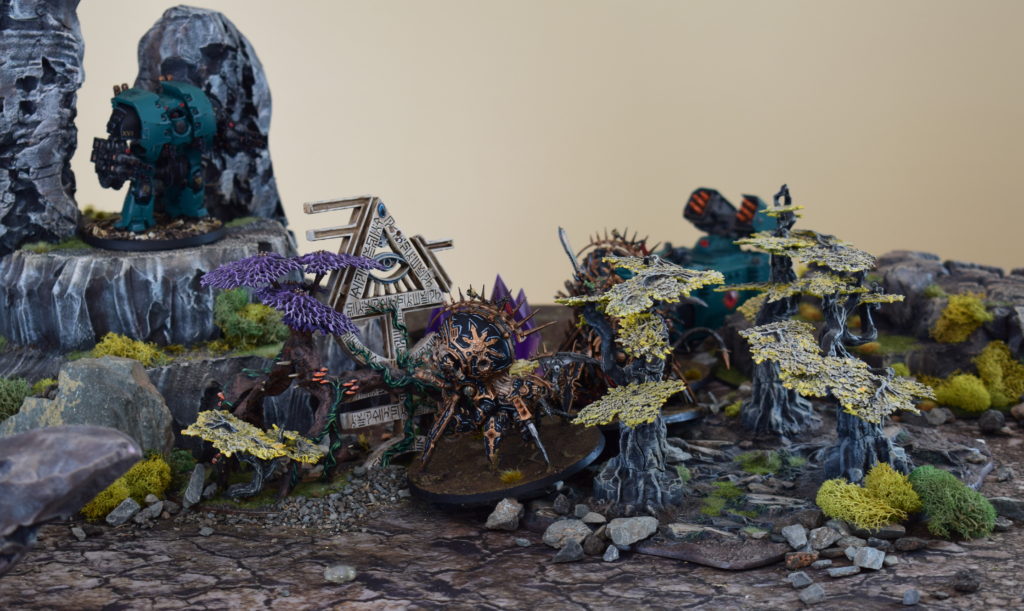
Mission Design
I’ve found the best way to keep the game play flowing and players involved when starting campaign play with you group is to design the mission such, that regardless of who wins or loses, the following missions is set in stone.
So for in the Aeldari vs. Chaos campaign I described above, the Warmaster is advancing on specific Webway Gates across several worlds. Asuryani Farseers have divined their location and Aeldari forces have setup defenses in advance of the Warmaster’s arrival. The Aeldari goal is to weaken Abaddon’s forces as they advance. The Aeldari know they can’t stop the Chaos advance entirely, the goal instead to inflict maximum damage so as to set the pace and gain the upper hand in the battles to come. The forces of the Warmaster’s goals are the same.
So this means that Chaos forces will be advancing into Aeldari territory regardless of whether who wins or loses. In a 3 game series, if the Chaos player wins the first 2 missions, they’ll win by default, meaning they’ve cleared away Aeldari resistance and advanced unopposed on the Webway Gate. If the Aeldari win the first 2 missions it means they’ve crushed the invaders. But if its a tie they’ll have an epic confrontation at Webway Gate in a winner takes all scenario.
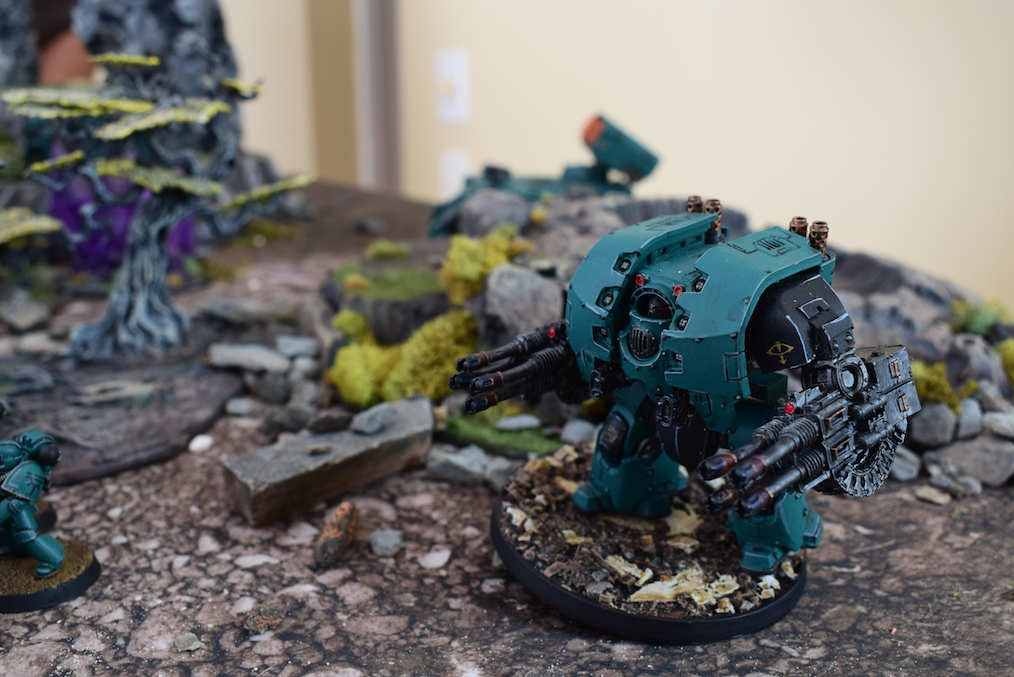
Victor Bonuses, Not Loser Penalties
In the simple campaign structure I detailed above, its important not to stack the odds to heavily in the favor the winning player. In many campaigns I’ve participated in I’ve found that things get wildly out of control in terms of balance. In the campaigns I run, I never penalize the loser of the previous game, but simply grant an advantage to the winner. When you both penalize the loser and give an advantage to the winner, its doubling up on the advantage of the winner and its stuff like this that usually compels people to check out and not play. 40k is hard enough and playing at a crazy disadvantage is usually just a waste of time.
So for example in the first mission of my campaign, whoever wins gets First Turn with no Seize the Initiative roll-off in the next game. In the subsequent missions, the winner will get the Primary Objective in their deployment zone and other such benefits.
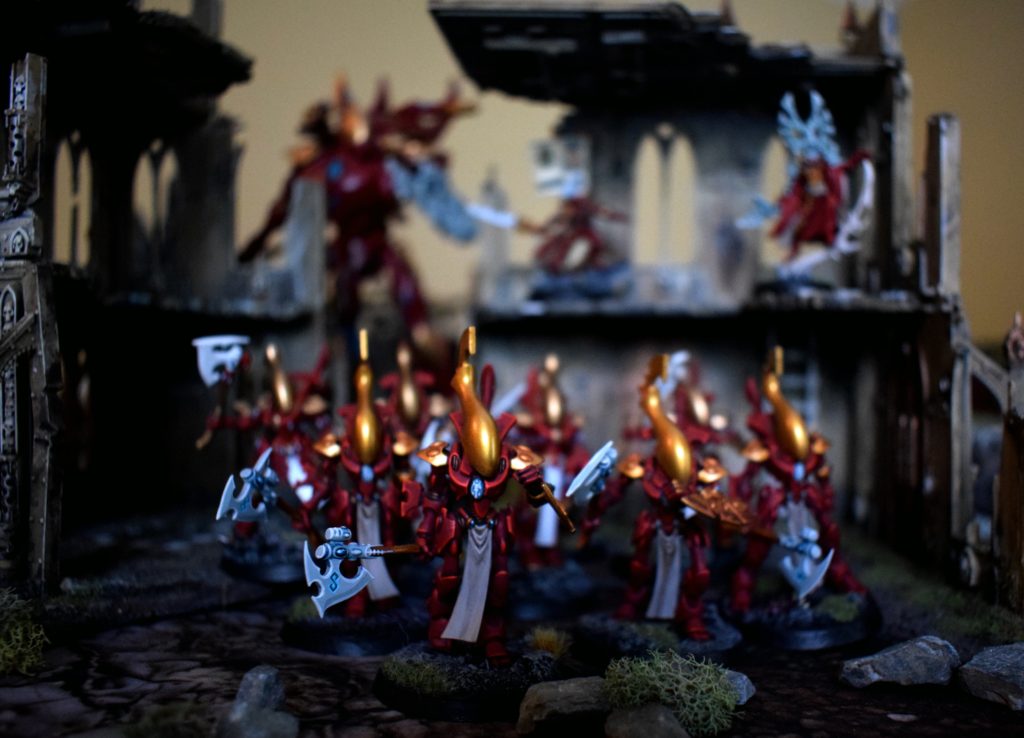
Allow List-Tailoring
I always give my players the mission a week in advance and make them aware of the advantage the winning players has in the next mission. This means that even if you are on a losing streak you can draw upon the best units to accomplish the mission ahead and try and get back into the fight.
So if you are an Aeldari player you know you have a big “end of game” objective scoring mission, you’ll know you want some Swooping Hawks, or Striking Scorpions to pop on objectives at the end of the game. If you are the Chaos player you’ll take appropriate countermeasures to deal with these units (screening them out etc.).
In one mission I ran the Primary Objective was held by whatever unit had the highest points value instead of Obsec. So a Great Unclean One, a Wraithknight, a Renegade Knight, a huge unit of Terminators or Abaddon himself etc. were ideal over say a stupid unit of Cultists or Rangers.
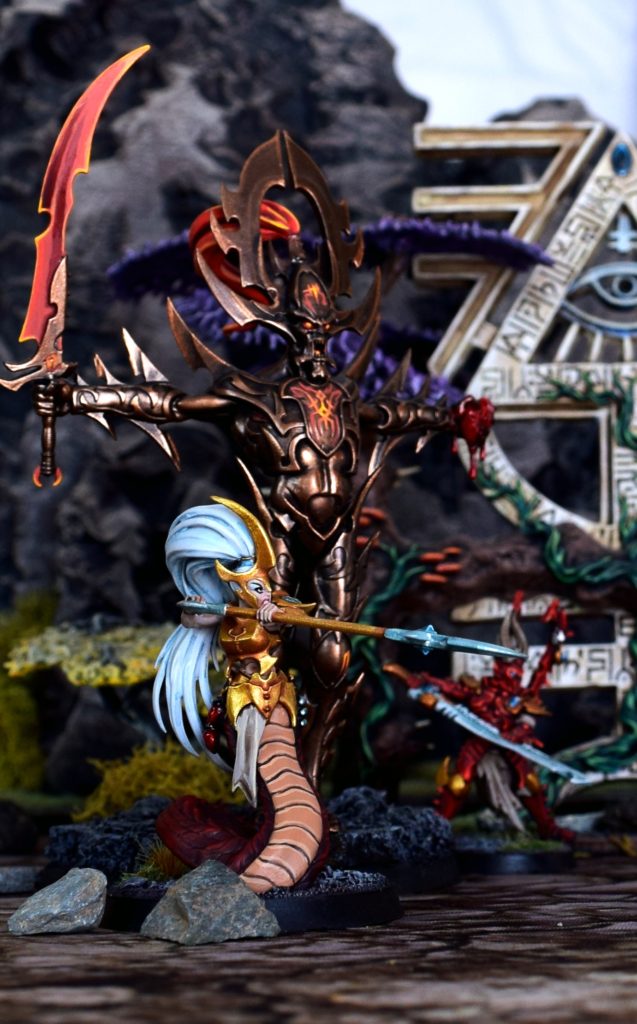
Why Campaign Play?
What I’ve found so enjoyable about campaign play is it gives you a chance to win a meaningful series of games outside of the grueling environment of a tournament setting where you are playing for 6+ hours. You can bang out 3 games over a few weeks and seize bragging rights at a more relaxed and enjoyable pace.
Also you get a chance to play against the same opponent or faction multiple times and I’ve found that can be a great learning experience, allowing you to work on your chops as a player, getting to see if you can correct any errors in decision making whether on the table or in the list building process. It also allows you to learn about the in’s and out’s of your opponents faction. Personally I’ve found it a great gauge of player skill in that you are going to a game knowing roughly what you are dealing with. There less of a chance then getting totally blindsided by the appearance of completely unexpected faction. 2 players knowing roughly what they are up against is like two sports team going up against each other in the playoffs. You know the basic tools at your opponents disposal, you know the stakes its just up to who plays better that day. You aren’t planning for 17+ potential teams to show up.
I’ve found not having to account for every faction in the game creates a more relaxed atmosphere with both players having a good understanding of what they are up against, and its fun taking units you know that will do well given the faction they are up against and the mission they are involved with.
Finally its great fun to seize ultimate glory and see your army conquer all that lays before it. Its a great opportunity to bust out some transfers, give your unit some honor/campaign badges and just have a good time and flex some creative muscles.
If you are interested in Aeldari discussion check out our podcast: Splintermind for exclusive Drukharii and all things Aeldari news and discussion. If you are interested in following my painting exploits check me out on Instagram! Thanks for reading and stay tuned!
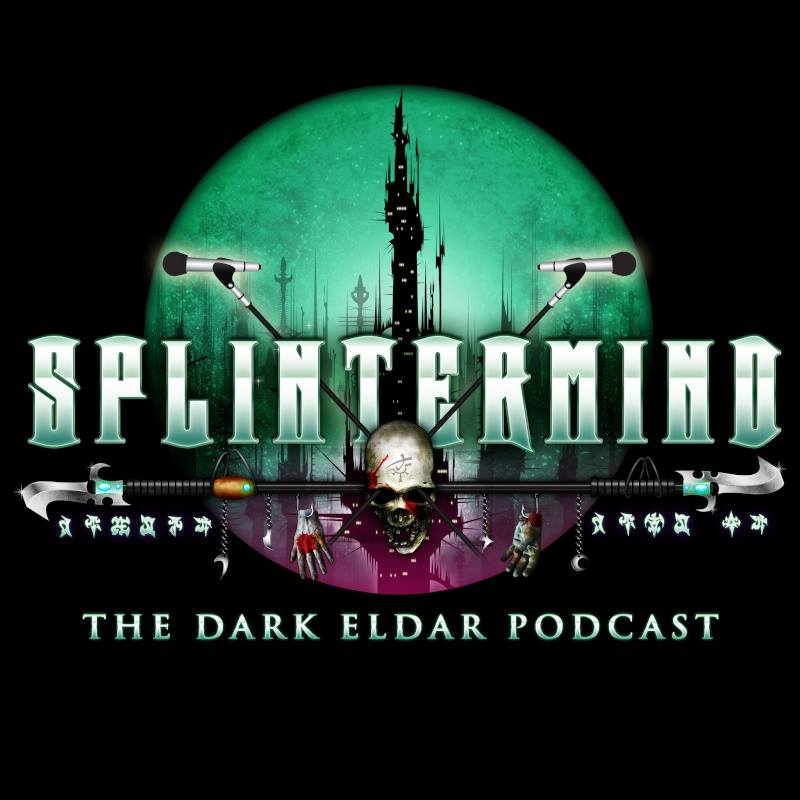
And remember, Frontline Gaming sells gaming products at a discount, every day in their webcart!



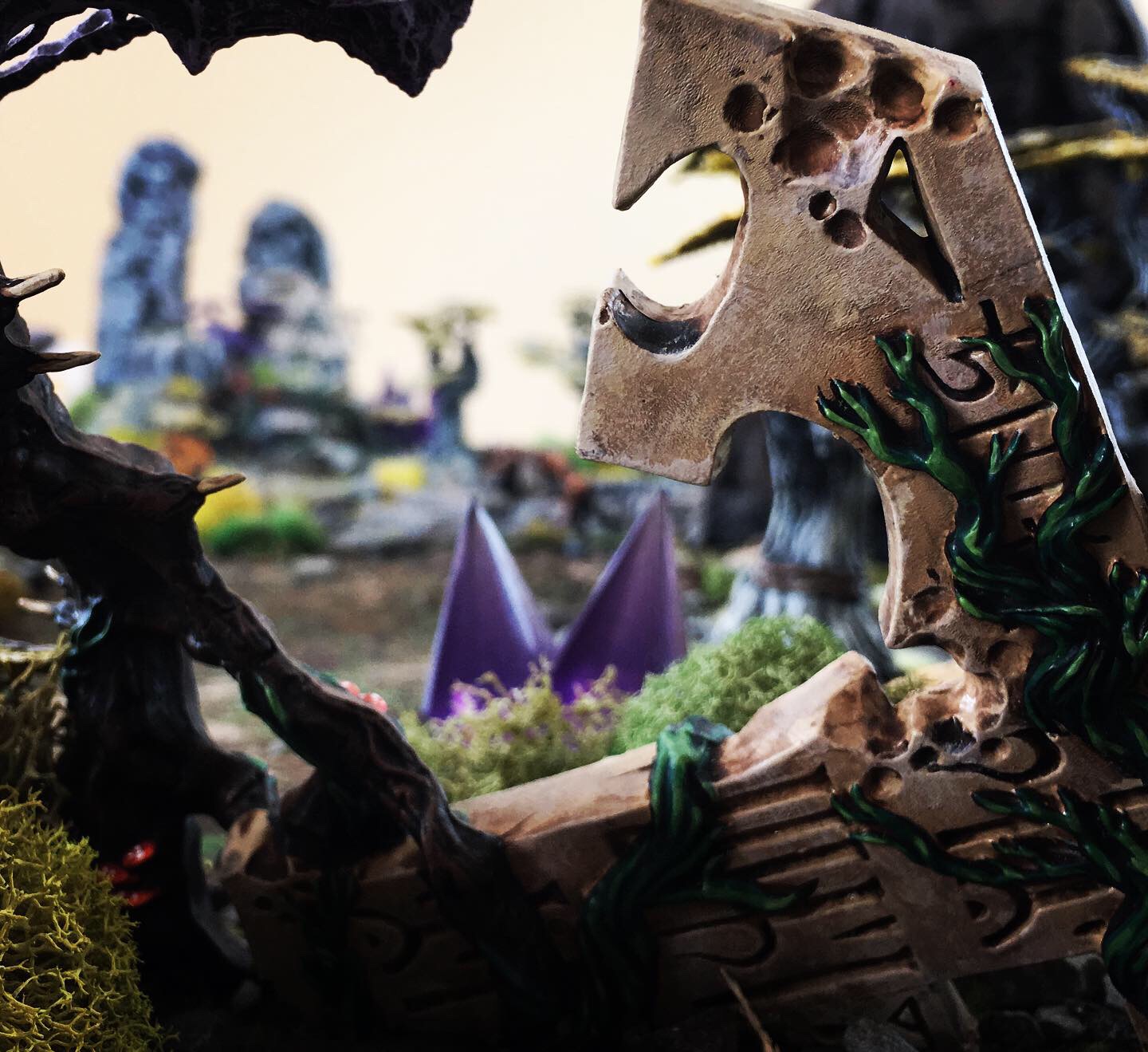
Nice article! Has inspired me to try another campaign at my gaming club next year.